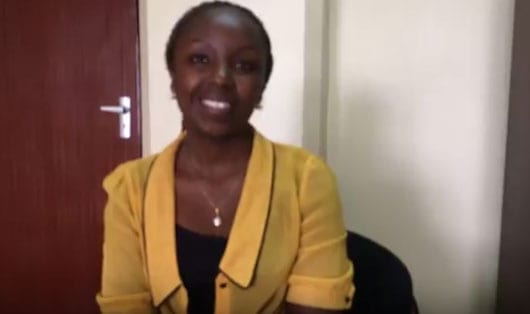As a young woman working in her company’s IT department, Jayne Muthoni Njoki was frustrated by what she says were employer attempts to push her around because of her youth and sex. But rather than quit her job, which she contemplated, she ran for a leadership position in her union, determined to work with others to make change on the job—and in society.
“I needed to fight for people whose voice can’t be heard,” she says.
Now 31, Njoki is the only young person in elected leadership in the Central Organization of Trade Unions–Kenya (COTU-Kenya), a Solidarity Center partner, and also president of the International Trade Union Confederation (ITUC)-Africa Young Workers Committee.
Njoki discussed how she is working through unions in Kenya and around Africa to educate and train young workers, especially young women, this week on the Working Life podcast, hosted by Jonathan Tasini (Njoki’s interview starts at 30:02).
Many Young Workers Work in Jobs that Don’t Pay Enough to Get by
With 71 million young people around the world unable to secure employment and 156 million more working poor because they have unstable income in the informal economy, the lack of jobs that pay living wages “is a global issue,” she says.
“We need to now think of the informal sector. When I talk of informal economy, that’s where you see the majority of young people are based.
“But unfortunately, we don’t think the informal sector is part of the economy.” Enabling informal-economy workers to have a voice through unions and associations is key to advancing their rights as workers—and once the informal economy is organized, “then everything will fall into place,” she says.
Through COTU-Kenya, which she says has encouraged young workers and women to become union leaders, Njoki also is working to create awareness among domestic workers about their rights and advance their efforts to become union leaders. Many are sexually harassed and assaulted, and fearful of speaking out about their treatment, she says.
Women workers and even women leaders “can’t come out because they are afraid, they are threatened. It’s not easy to come out and say ‘this is my right [to not experience gender-based violence on the job]’ as a young person, as a young lady.”
As she takes on the challenges facing young workers, Njoki is optimistic about the future. “So many ladies, even young people and young men, they are ready to listen and they are ready to work together so we can drive the agenda together.”

